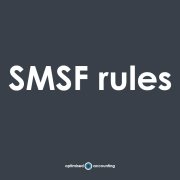As of 1st July 2019 there were some changes that came into affect. This includes:
- Insurance inside Superannuation funds
- We let you know the tax tip-offs from the ATO
- Laundry expenses are going to be reviewed
- Who owns the assets of a trust?
- New pay rates from 1 July

Super, Insurance and Exit Fees: The 1 July changes
From 1 July 2019, new laws prevent superannuation providers from eroding member balances with unwanted or unnecessary insurance and exit fees. Plus, inactive accounts with low balances will be moved to the ATO to try and unite the unclaimed super with its owner.
These changes do not apply to self-managed superannuation funds or small APRA funds.
Insurance inside your fund
Up until 30 June 2019, superannuation providers were required to provide members with appropriate life and total and permanent disability (TPD) insurance inside superannuation on an ‘opt out’ basis. That is, the insurance was automatically put into place when you became a member of the fund.
The problem is that for a lot of people, such as young people with no dependants and those with insurance cover elsewhere, these default insurance premiums are a key factor in eroding their superannuation balances. And in many cases, people simply did not realise they had insurance inside their funds.
New laws that came into effect on 1 July 2019 prevent superannuation providers from maintaining ‘default insurance’ for any member with an account that has been inactive for a continuous period of 16 months unless that person has elected to maintain the insurance. An inactive account is one where no contributions or rollovers have been received in the previous 16 month period.
For everyone else, insurance will remain a default on new and existing superannuation funds unless you specifically opt out.
What to do if you are affected
If you are affected, you need to make a decision about whether the insurance held in your fund is valuable to you. Often insurance cover through superannuation is cheaper than what you might be able to access elsewhere. Also, the premiums come out of your fund so they don’t impact on your cashflow. However, if the insurance is unnecessary or duplicated, the premiums will simply erode your account.
Employer default super funds generally provide death and TPD cover. This basic cover may be available without health checks. You can usually increase, decrease, or cancel your default insurance cover. Your super fund’s website will have a product disclosure statement (PDS) which explains the insurer they use and details of the cover available.
If you are affected, the insurance you hold inside your super fund may be cancelled unless you take action. If you choose to, you can keep your insurance by contacting your insurer (login to your insurer’s website and follow the links or call them to find out how to make the election) or by making a contribution. The election cannot be made over the phone to your fund.
Your superannuation provider is obliged to let you know if your insurance is about to be cancelled.
Low balance super accounts moved to ATO
Australians have over $17.5 billion in unclaimed superannuation. From 1 July 2019, superannuation providers will be required to report and pay inactive low-balance accounts to the ATO. Twice a year, super funds will report and pay:
- unclaimed super of members aged 65 years or older, non-member spouses and deceased members.
- unclaimed super of former temporary residents.
- small lost member accounts and insoluble lost member accounts.
- inactive low-balance accounts.
A low balance account is one with less than $6,000. These new rules mean that if your superannuation account has less than $6,000, and the account has been inactive for 16 months, the balance will be transferred to the ATO who will attempt to consolidate your superannuation.
Reducing fees and charges
From 1 July 2019, exit fees including fees on partial withdrawals have been abolished for all superannuation fund members regardless of their superannuation account balance.
Where a superannuation fund member’s final account balance is less than $6,000 in a year, new caps apply to the fees that providers can charge. From 1 July 2019, administration and investment fees and other prescribed costs on these accounts will be capped at 3%. If the fund has charged more than 3%, the excess needs to be refunded within 3 months.
60,000 tax cheat tip-offs
Tip-offs to the Australian Taxation Office (ATO) have reached an all-time high with close to 60,000 tip-offs received between June and May 2019 – almost double the number of the previous year. The ATO thinks the number of tip-offs will reach around 70,000 for the full financial year.
Common problem areas that people feel obliged to report include suspected tax evasion, illegal phoenix activity, and the black economy. More than half of all tip-offs received were for suspected under reporting of income or about the cash economy, for example businesses demanding cash from customers or paying their workers cash in hand.
The effectiveness of the tip-off line has led the ATO to dub it the “crime stoppers” for tax.
ATO Assistant Commissioner Peter Holt suggests that the people doing the right thing “…have had enough of competitors cheating the system and getting an unfair advantage.”
The tip-off line has been so successful that a new and improved “Tax Integrity Centre” launched this month to provide a single point of contact for reporting suspected tax evaders.
The top 5 ‘tip-offs’ to the ATO
- Under-reported income 31%
- cash economy 27%
- non-lodgement 25%
- inadequate or no superannuation paid 8%
- over-stating expenses 3%
Some of the typical behaviours reported include:
- Discounts for cash, cash deals without a receipt or a discount for cash/mates rates
- Jobs paying cash wages without payslips or superannuation entitlements
- Not ringing up a sale on the till or keeping the till drawer open
- Having two sets of books
- Deleting transactions on the point of sale system
- Claiming work-related expenses the taxpayer is not entitled to
- Attempts to avoid paying child support or other obligations by appearing to earn less income than what the person receives
- Failing to lodge returns or keep records
- Arrangements that promise tax benefits like fabricated deductions or schemes out of step with the intention of the law
Business owners are reported for:
- Claiming personal expenses on a business account so they can claim deductions
- Paying employees late or less than they should
- Not paying superannuation or other employee entitlements
Laundry expenses hung out to dry
The ATO is airing the ‘dirty laundry’ on work-related clothing and laundry expenses warning that it is closely reviewing claims.
“Last year around 6 million people claimed work-related clothing and laundry expenses, with total claims adding up to nearly $1.8 billion. While many of these claims will be legitimate, we don’t think that half of all taxpayers would have been required to wear uniforms, protective clothing, or occupation-specific clothing,” Assistant Commissioner Kath Anderson said.
Clothing claims are up nearly 20% over the last five years and the ATO believes taxpayers are making common mistakes and errors like claiming ineligible clothing, claiming for something without having spent the money, and not being able to explain the basis for how the claim was calculated. In some cases, the ATO will ask employers if they require their employees to wear a uniform to check the validity of claims made.
In one case highlighted, a car detailer claimed work related laundry expenses of over $20,000 per year over two years. It seems that the taxpayer worked out how many hours he spent doing his laundry then multiplied that by what he thought was a reasonable hourly rate ($227 per hour because his personal time was valuable). Needless to say, the taxpayer’s claim was reduced to $0.
It’s not just large claims that the ATO is reviewing but claims up to the $150 substantiation threshold. Claims over $150 have to be substantiated with receipts for expenses. Below this level taxpayers are not required to keep normal records. The ATO believes that a lot of taxpayers are simply ticking the box thinking that the claim is a ‘standard deduction’ but it’s not an automatic entitlement.
“Just to be clear, the $150 limit is there to reduce the record-keeping burden, but it is not an automatic entitlement for everyone. While you don’t need written evidence for claims under $150, you must have spent the money, it must have been for uniform, protective or occupation-specific clothing that you were required to wear to earn your income, and you must be able to show us how you calculated your claim,” Ms Anderson said.
Who owns the assets of a trust?
It’s not uncommon for people to put assets such as their family home into a trust, particularly professionals working in litigious fields or family groups wanting to protect assets. A recent case highlights some of the tax problems that can occur.
The taxpayer in this case had become the owner of their main residence as a result of a Family Court order. At that time, they caused the property to be held in the name of a trust (with a corporate trustee of which the taxpayer was a director).
4 years later when the property was sold, the taxpayer sought to access the main residence exemption to exempt the property from capital gains tax (CGT). Afterall, it was their main residence. However, the ATO saw it a different way. Instead, they saw the proceeds of the sale of the property as a distribution from the trust to the beneficiary. Therefore, the main residence exemption could not apply as it generally only applies to an individual taxpayer.
The ATO has previously indicated that the main residence exemption can apply in situations where a property is held in trust but the individual living in the dwelling is “absolutely entitled” to the property as against the trustee.
The taxpayer argued that the property was not an asset of the trust but was held by the trustee in a different capacity (effectively as a bare trustee) and that the taxpayer was absolutely entitled to the asset – citing the terms of the Family Court order as evidence.
However, the Federal Court agreed with the ATO.
The decision relied heavily on the evidence surrounding the transfer of the property to the trustee. While the Family Court orders allowed the property to be transferred to the taxpayer or a nominee, rather than specifically providing that the taxpayer was to have ownership of the property, there was not enough evidence to prove that the property was held under a bare trust arrangement and that the taxpayer was an absolutely entitled beneficiary.
Working against the taxpayer was the evidence that suggested that the property was a trust asset. The taxpayer had agreed to the transfer, had signed financial statements that identified the property as a trust asset, the proceeds from the sale were accounted for as an asset of the trust, and there was a valid resolution by the trustees distributing the net capital gain to the taxpayer.
In effect, without explicit documentation stating that the property was held on bare trust for the taxpayer at the time of the transfer, it did not matter that all the parties involved thought things were structured differently. The case also shows how important it is for everyone to understand the implications of what is presented in the financial records. The actions of the taxpayer in this case when they signed off the accounts was a factor that led to the Court to determine that the property was an asset of the trust.
New pay rates from 1 July
New pay rates came into effect from 1 July 2019 with the minimum wage increasing by 3% from the first full pay period. The new national minimum wage is now $740.80 per week or $19.49 per hour. The national minimum wage applies to employees who aren’t covered by an award or agreement.
Penalty rates have also changed in the Hospitality and Fast Food awards.
Want to receive information like this in your inbox?
Sign up to our monthly newsletter here to receive due dates, news, tax tips and other important things that we think are useful.










